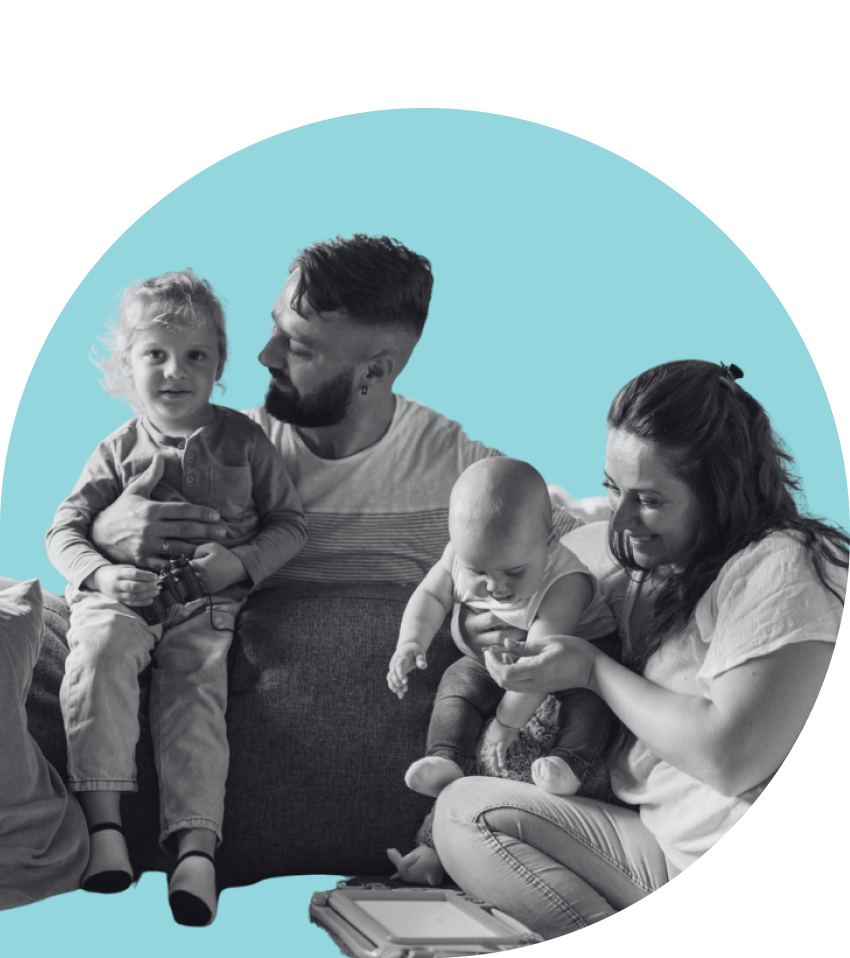The future of work is
Together with forward-thinking employers, industry pioneers and community leaders, we’re championing a movement to embed care into the heart of workplace culture.
We advise, educate and certify workplaces to be family-friendly employers.
Trusted by
hundreds of workplaces globally
to care for their people since 2007
Let’s shape the future of work, together.

Wellbeing
of employees report significant difficulties managing their physical and mental health due to competing work and family pressures.

Flexibility
of employees say their commitment to their job is questioned if they used family-friendly work arrangements.

Care
of employees want more access to caring support from their employer
Bridging the Gap Between Workplace Policies and Care Realities
Societies and economies around the world face increasing friction between the demand for productivity and the growing care needs of the current and future workforce, and workplace policies must evolve accordingly.
Despite progress, the gap between policy and lived experience remains wide.
Empowering Families,
Advancing Businesses
Not only do family-friendly policies contribute to better health and wellbeing for families and developmental outcomes for children.
Evidence shows that such policies improve workforce productivity and enhance an organisation’s ability to attract, motivate, and retain employees. Family-friendly policies also play a crucial role in reducing gender inequality.
The absence of such policies disproportionately affects women, who often bear the greater burden of caregiving responsibilities, undermining their career progression and economic empowerment.


The Work & Family Ecosystem
One connected framework. End-to-end impact.
Our Work & Family Ecosystem brings together the tools, training and strategies that embed care and inclusion at every level of your organisation.
Partnering with Parents At Work means taking a 360° approach to workplace culture.
This ensures that:
- Leaders are equipped to lean into work life wellbeing and develop a sustainable workforce for the future.
- Employees feel valued and cared for.
- Policies move from intention to practice.
- Wellbeing is culturally embedded.
- Impact is measured and tied to business performance.
- Measurable outcomes tied to engagement, retention, and wellbeing.
- Benchmarking tools and certification to track progress against industry and global standards.
- Evidence-based advice on policy design and implementation.
- On-demand education and leadership training to embed inclusion at scale.
- Stronger gender equality and greater carer workforce participation.
- Improved wellbeing for employees and the people they care for.
- Safer, more inclusive workplace culture with reduced carer-related discrimination.
- Higher employee attraction, retention and productivity.
- Confidence that policies are not just compliant but truly making a difference.
Integrated Workplace Solutions:
Workplace Advisory, Education & Certification
Choose from a suite of solutions to elevate leadership,
wellbeing, and family inclusion across your organisation.

Benchmarking & Advisory
Partner with social impact experts, gain access to evidence-based family‑inclusive policies and tools, and follow a clear pathway toward Family Inclusive Workplace certification.

Leadership Development
Empower your leaders to champion family‑inclusive culture, embrace flexibility, and embed sustainable wellbeing practices across your organisation.

Work & Family Solutions
Equip your employees with wellbeing programs, parental leave support, coaching, and 24/7 resources that help employees thrive at work and at home.

Family-Inclusive Certification
Achieve recognition as a Family Inclusive Workplace, demonstrating your commitment to ongoing improvement and measurable social impact.

Insights That Drive Impact
Understanding the Needs of Working Parents & Carers
Evidence‑based insights keep your workplace policies current, meaningful, and impactful.
We're creating family-friendly workplaces that support people to thrive at work and at home.
How Family-Friendly is your Workplace? Start with the free 15-minute online Benchmarking Assessment to see where your organisation stands.
Join 650+ organisations who have already taken the first step.

Partner with us to build family‑inclusive workplaces, that drive real impact.
Whether you’re just starting or ready to lead the way, we’ll meet you where you are. Let’s make your workplace one of the best in the world to work and care.

